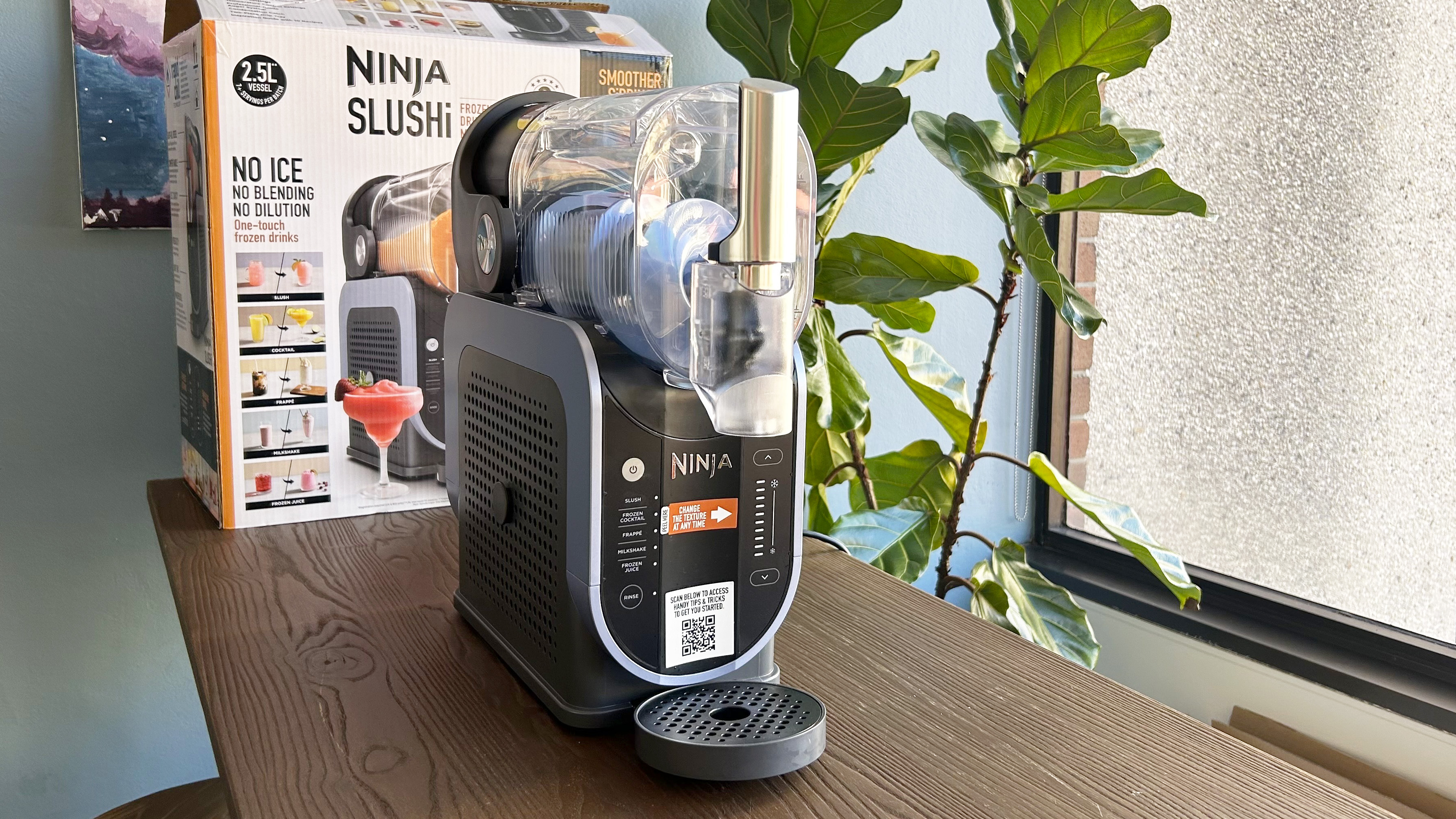Vodafone found to be a top-performing mobile network — except where it matters
Slow and steady doesn’t quite win this race

Mobile operator Vodafone — which, let's be honest, probably isn’t the first one that comes to mind due to the notoriety of Telstra and Optus in Australia — has returned some favourable results in a report published by independent communication analyst Opensignal. The report, which looks into the overall mobile network experience, obtains and analyses data from millions of users and devices that was collected between January and March 2023.
The connection is strong with this one
Perhaps most crucially, Vodafone has knocked it out of the park when it comes to 5G availability in Australia. While you may assume this relates to coverage (we did too), Opensignal says its 5G availability metric refers to how long you remain connected to a 5G signal, after the initial connection has been made. Opensignal’s data found Vodafone users remained connected 30.8% of the time, compared to 19.2% and 12.1% for Telstra and Optus, respectively.
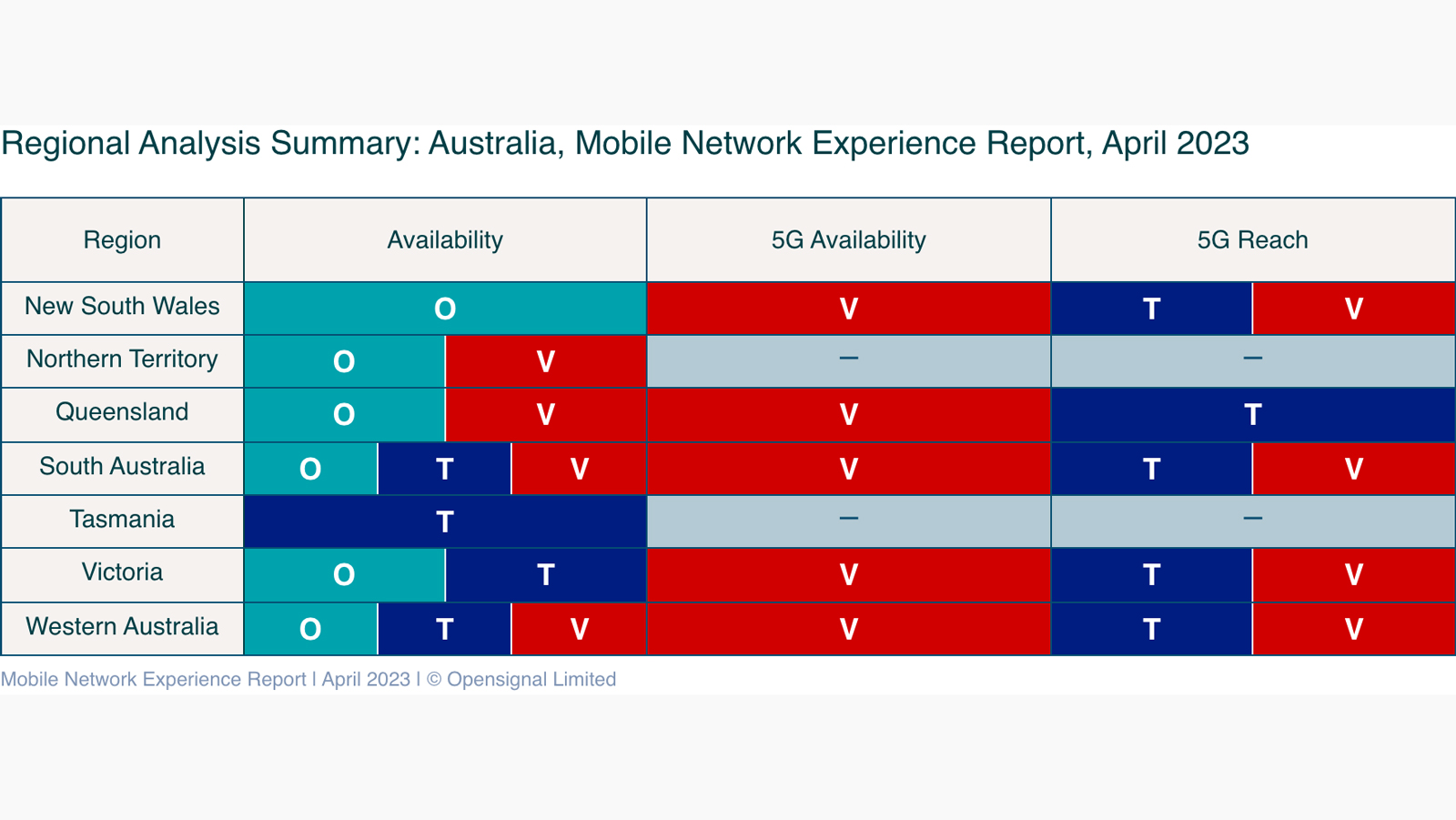
These figures represent Australia as a whole, but it’s still good news for Vodafone when you take a look at statistics for each state. The telco won outright for 5G availability in all five regions of NSW, Queensland, South Australia, Victoria and Western Australia.
No 5G data was recorded for any telco in the Northern Territory and Tasmania.
Opensignal doesn’t provide much commentary as to why Vodafone may have walked away with these wins, so we can only speculate. We’d argue that Vodafone users are more likely to remain connected to a 5G network because there are simply fewer people using the network.
We don’t have access to the very latest user statistics, but Telstra says on its website that it provides “18.8 million retail mobile services,” and Optus reported 10 million mobile customers as of 31 March ,2022. In contrast, Vodafone says on its website that there were 5.25 million mobile customers within the entire TPG Group, of which Vodafone is a member, as of 31 December, 2020.
Therefore, because a significantly higher number of people are going to be connected to the Telstra and Optus 5G networks, they are more likely to become congested and so are more likely to be downgraded to a 4G signal. Regardless, Opensignal’s findings imply that Vodafone’s 5G network is stronger than its competitors.
Sign up to get the BEST of Tom's Guide direct to your inbox.
Get instant access to breaking news, the hottest reviews, great deals and helpful tips.
It should be noted that while Vodafone wins outright for 5G availability, it is a different story when 3G and 4G availability are brought into question. The telco was only a joint winner for overall availability in the NT, Queensland, South Australia and Western Australia.
Reach-ing for the win
Vodafone also performed well in Opensignal’s 5G reach metric, which is more concerned with the geographical performance of mobile networks. Specifically, it analyses the average proportion of locations where users were connected to a 5G network, out of all the locations they’ve visited, i.e. how likely it is that they’re going to be able to connect to a 5G network.
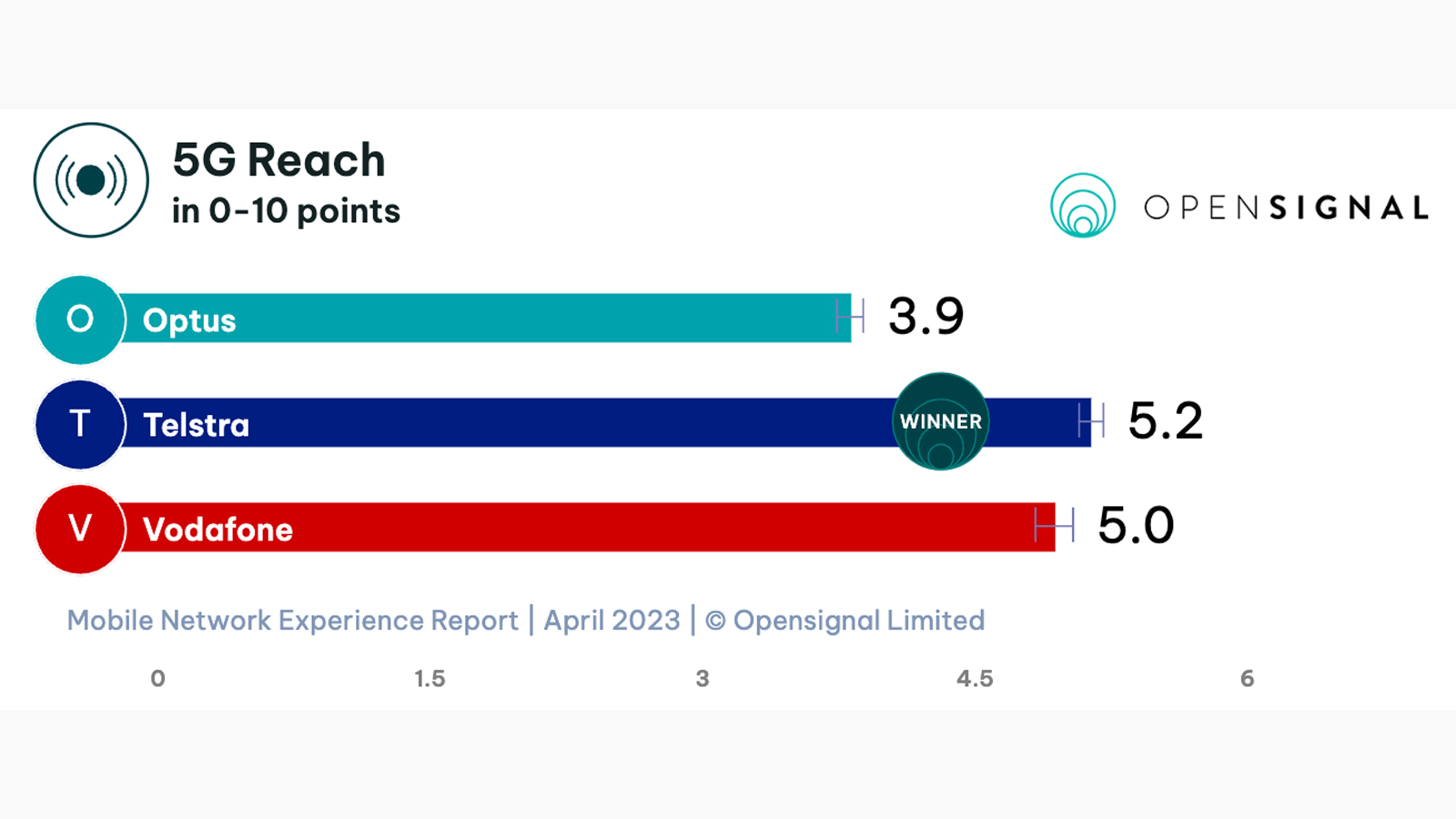
While Vodafone didn’t dominate this category in the same vein as 5G availability, it tied with Telstra in NSW, South Australia, Victoria and Western Australia. Telstra won outright in Queensland.
Gaming out on top
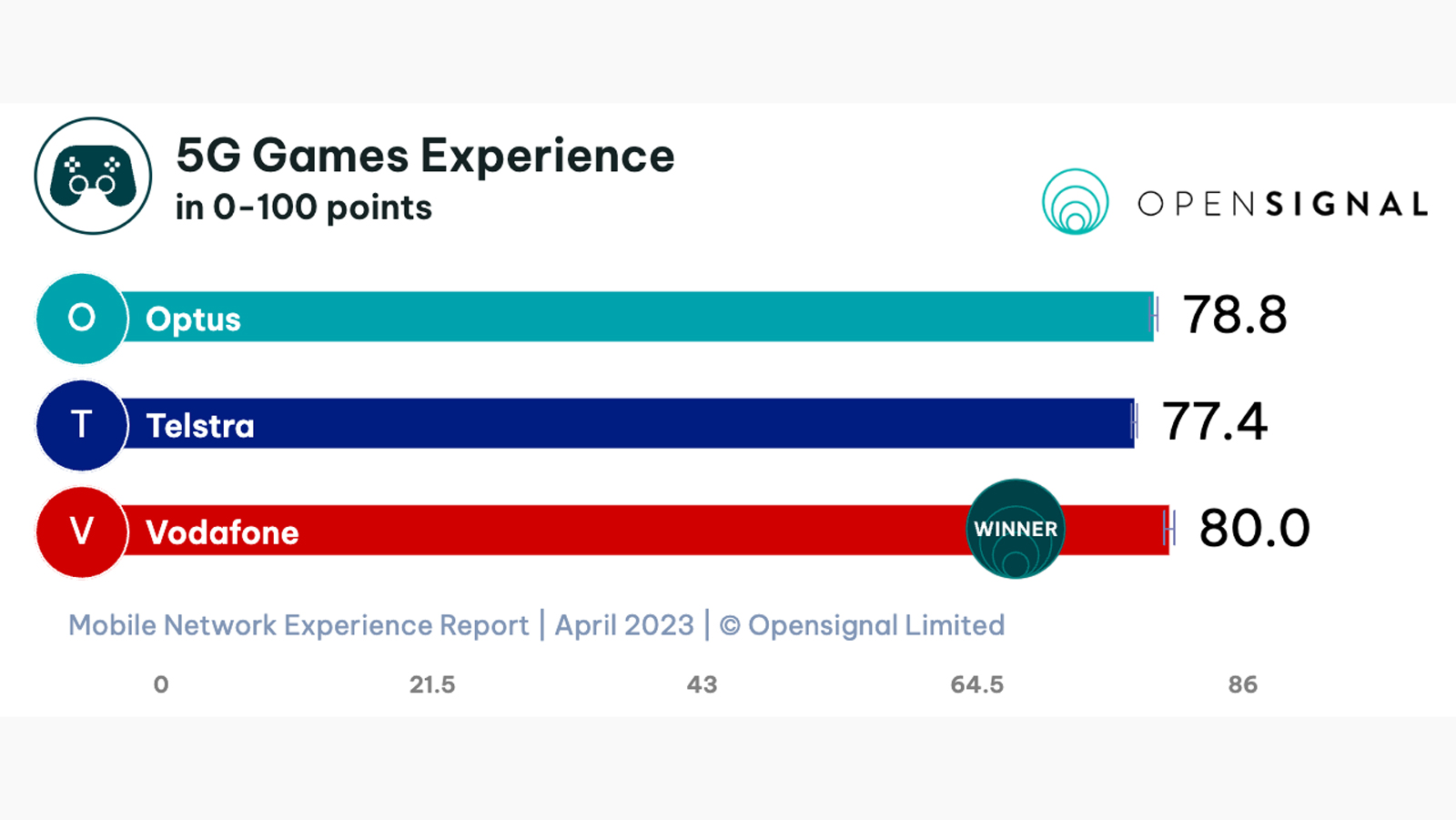
Another — perhaps surprising — win for Vodafone came in the 5G games experience category which — perhaps unsurprisingly — measures the games experience when connected to a 5G network. Measured on a scale of 1 to 100, Vodafone won with a score of 80 points.
Optus and Telstra came in second and third place respectively with 78.8 and 77.4 points.
We have a theory as to why, which we'll explain in a little more detail below.
Performance issues where it counts
Despite its triumphs, Vodafone came up incredibly short when it came to 5G download speed. Optus walked away with the win, with an average 5G download speed of 229.6Mbps. Telstra wasn’t too far behind with an average of 215Mbps.
But Vodafone returned an average 5G download speed of just 106.8Mbps, similar to the maximum real-world speeds achieved on 4G networks.
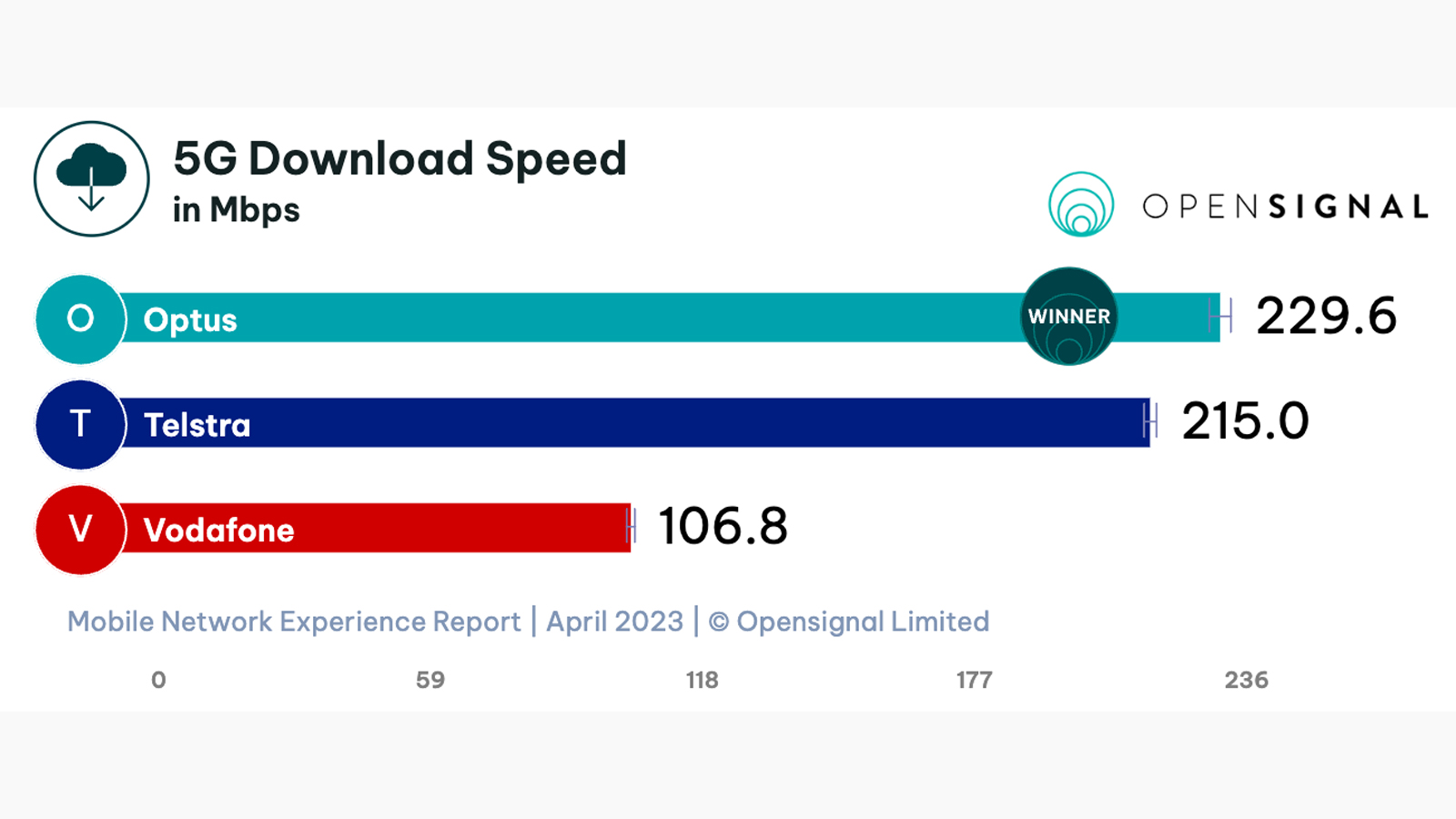
Vodafone also came in third place for overall download speed experience for 5G users. This differs slightly to the 5G download experience in the fact that it also factors in 2G, 3G and 4G download speeds, and is recorded from users with a 5G device and a 5G mobile plan.
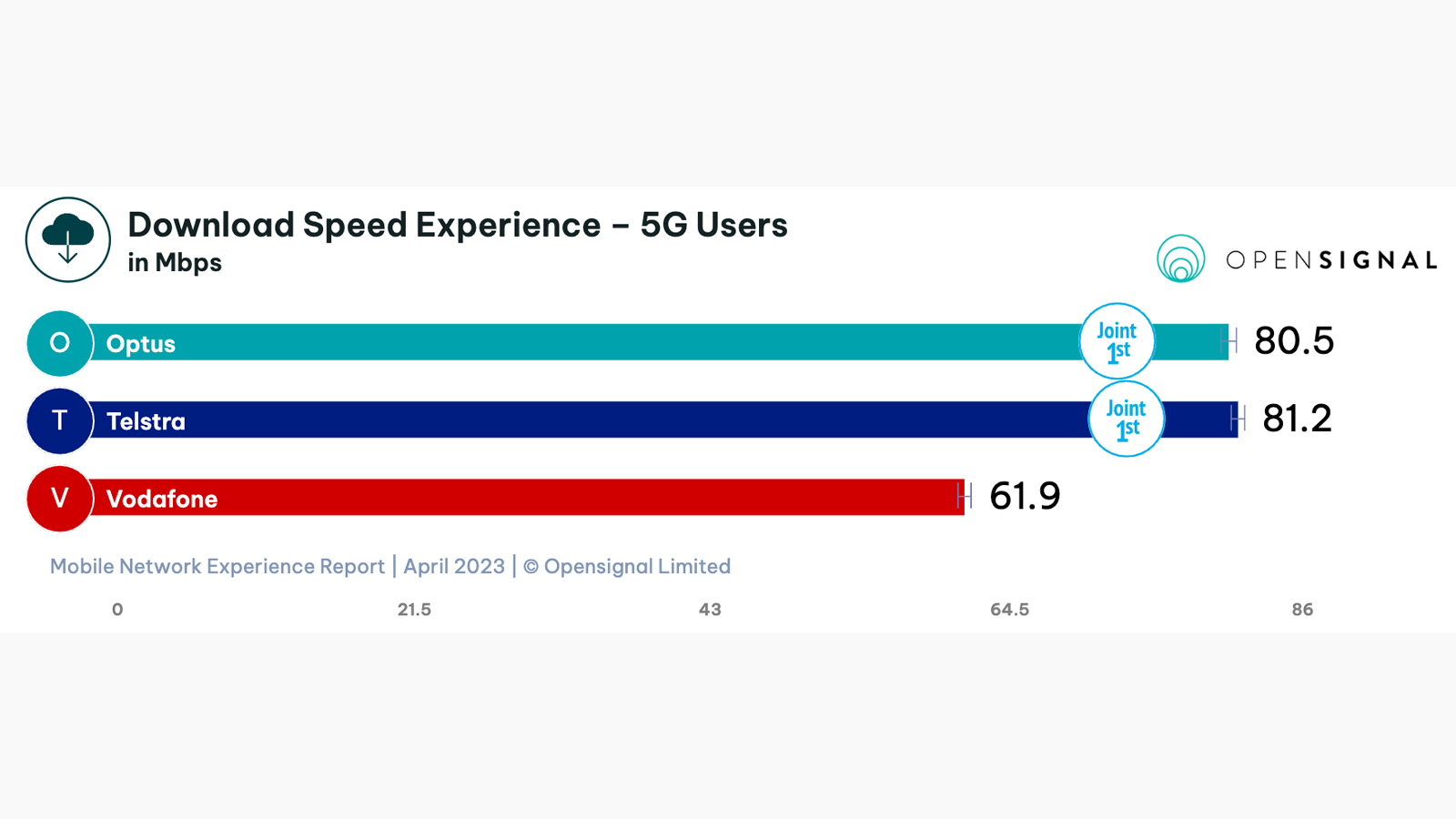
For this metric, Vodafone scored an average overall download speed of 61.9Mbps. Telstra and Optus tied for the win, with average speeds of 81.2Mbps and 80.5Mbps, respectively.
We’d argue that the majority of users flocking to 5G mobile plans do so because of the superior download speeds it offers, meaning Vodafone is one to avoid based on Opensignal’s findings.
In relation to the 5G games experience, and Vodafone’s win, the revelation of the much slower download speeds reinforce the fact that speed has little effect on gaming performance. Instead, gaming performance is determined by latency, jitter and packet loss, which themselves are determined more by server location than quality of the telco’s network.
More from Tom's Guide

Max is a digital content writer for Tom’s Guide in Australia, where he covers all things internet-related, including NBN and the emerging alternatives, along with audio and visual products such as headphones and TVs. Max started his career in his homeland of England, where he spent time working for What Hi-Fi? and Pocket-lint, before moving to Australia in 2018.
